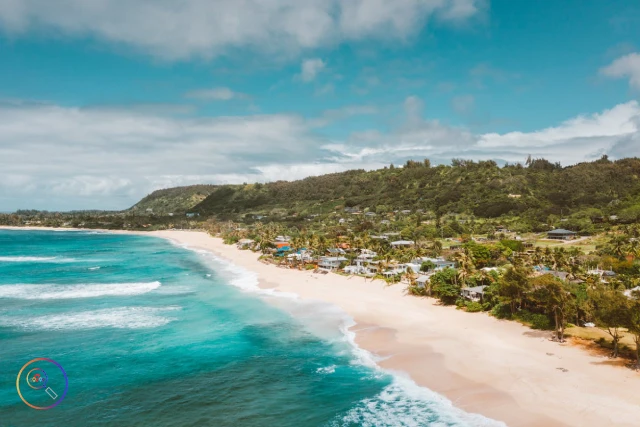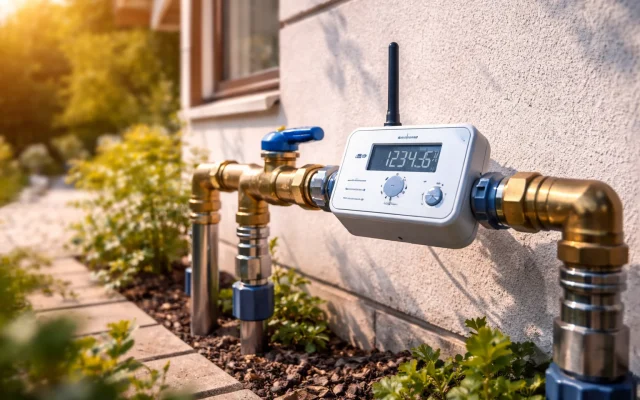Buying your first home is a big deal, but buying your first island home? That can feel like a dream come true. Whether you’re moving to slow things down or just ready for a lifestyle change, the idea of waking up near the ocean is hard to beat.
But it’s not always simple. Islands have their own real estate rules, weather patterns, and limited inventory. That’s especially true in popular places like Maui, where demand often runs high and competition can move fast. If you’re just starting your search, this checklist will help you keep things organized and avoid surprises along the way.
Let’s break it all down.
1. Understand Island-Specific Market Conditions
Island markets are unique, and that’s especially true in places like Maui, where real estate moves fast and land is limited. Maui homes often come with a higher price tag compared to many mainland properties, simply because the demand is strong and the space is finite. Add in the appeal of year-round sunshine, ocean views, and easy beach access, and it’s no surprise that buyers from all over are interested.
If you’re thinking about buying your first home in Maui—or any Hawaiian island—you’ll want to look closely at how local conditions affect things like pricing, maintenance, and long-term value. Coastal weather can be tough on buildings, with salt air, wind, and humidity speeding up wear and tear. Certain areas might also have stricter building codes due to elevation or flood risk.
When you’re looking for an overview of current listings and helpful local insights, mauirealestate.com is a good place to start. You can see different types of properties, learn about neighborhoods, and get a sense of pricing before you dive deeper.
2. Figure Out Your Budget and Financing Early
Island homes often come with extra costs that first-time buyers don’t always expect. For example, flood insurance might be required in some coastal areas. If you’re eyeing a home in a resort-style community, expect homeowner association (HOA) fees. These can vary depending on the size of the property and its amenities.
Also, some lenders aren’t familiar with island-specific property rules. It’s a good idea to talk to a local lender or someone who has experience financing homes in island markets. Getting pre-approved will help you shop with confidence and show sellers you’re serious.
3. Choose the Right Island and Area
Not all parts of an island feel the same. Some neighborhoods are quiet and remote. Others are close to restaurants, shops, and schools. Before deciding where to buy, take some time to explore the area. Stay for a few days, talk to people, and picture yourself living there year-round, not just during vacation season.
Compare what daily life might feel like in different areas. One might offer a slower pace, while the other might have more activities and modern conveniences.
Think about what matters most—being near the beach, having room for guests, or living in a close-knit community. That’ll help narrow your search.
4. Get a Full Home Inspection
Don’t skip this step, even if a home looks perfect from the outside. Island weather can wear down a house faster than most people expect. High humidity and salty air can cause mold, rust, and wood rot. Roofs might need to be replaced more often.
Your inspector should look closely at the roof, plumbing, electrical, and foundation. If the home has a septic system, ask for a separate inspection. In some cases, especially in coastal areas, a termite check might also be required.
5. Check Insurance Options
Insurance works differently in island areas. You may need coverage for hurricanes, flooding, or windstorms—even if your mainland property never required those before. It’s smart to call a few insurance companies and compare quotes. Rates can vary depending on the exact location, elevation, and distance from the water.
Some lenders might also have rules about what types of insurance are required before they approve a loan. Get those answers early, so you’re not rushing at the last minute.
6. Understand Local Rules and Permits
Not all homes can be used as vacation rentals, even if they’re in popular tourist areas. Some islands have strict zoning laws or require special permits. That means if you’re planning to rent out your home, you need to check what’s allowed and what’s not.
Even if you’re not renting, it’s good to know whether a property is in a flood zone, conservation area, or has past permit issues. A local real estate agent or title company can usually help you track down this info.
7. Visit in Different Seasons if You Can
If you only visit an island in the dry season or during a holiday, you might miss what daily life is really like. Try to see the area during different months if your schedule allows. You’ll get a better feel for traffic, weather, and even how busy local stores and beaches are.
If that’s not an option, ask long-time residents or read local forums to learn about seasonal changes. Understanding this ahead of time helps you avoid disappointment later.
8. Know What You’re Responsible for After the Sale
After closing, it’s not just mortgage payments you need to think about. You’ll have property taxes, utility costs, and possibly association dues. Some island homes run on solar, catchment water systems, or propane tanks. That means maintenance looks a little different than it does on the mainland.
Make a list of what needs to be handled monthly, quarterly, and yearly. Staying ahead of small tasks can help you avoid bigger costs down the line.
Frequently Asked Questions (FAQs)
Island real estate often comes with higher price tags, limited inventory, and weather-related wear and tear. Markets like Maui are fast-moving, and local conditions can significantly impact pricing and maintenance.
Many national lenders may not understand island-specific property rules. A local lender familiar with flood zones, HOA fees, and insurance requirements can help you avoid surprises and streamline the financing process.
Spend time exploring different areas, talk to locals, and compare lifestyle factors like proximity to shops or beaches. It’s crucial to imagine living there full-time, not just as a vacationer.
Pay special attention to the roof, plumbing, and foundation, and inspect for mold, rust, or termite damage. High humidity and salty air can speed up deterioration, so thorough inspections are essential.
Yes. You may need additional coverage for hurricanes, flooding, or windstorms. Get multiple quotes early, as insurance requirements vary by elevation and proximity to the coast.
No, zoning laws and permit requirements vary across islands. Always verify rental rules and restrictions with local authorities or a knowledgeable agent before purchasing.
Beyond the mortgage, you may have to manage HOA dues, maintain solar or propane systems, and handle catchment water. A clear maintenance schedule can help prevent costly issues later.
Final Thoughts
Owning an island home is a major milestone, and you deserve to enjoy every part of it. While the process might come with a few extra steps, planning ahead can make it much smoother. Keep this checklist handy as you move forward. Ask questions, trust your instincts, and lean on local experts when you need to.
You’re not just buying a property—you’re starting a brand-new chapter. And with the right approach, it can be everything you hoped for.







